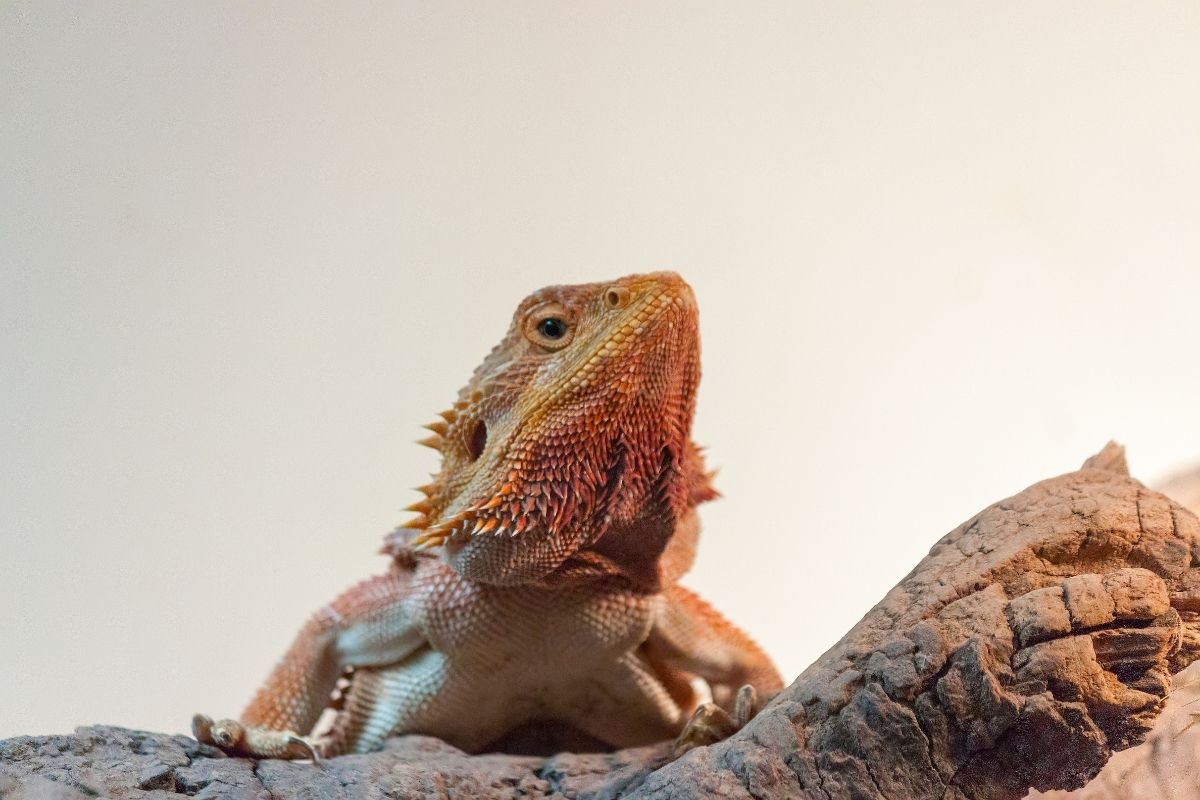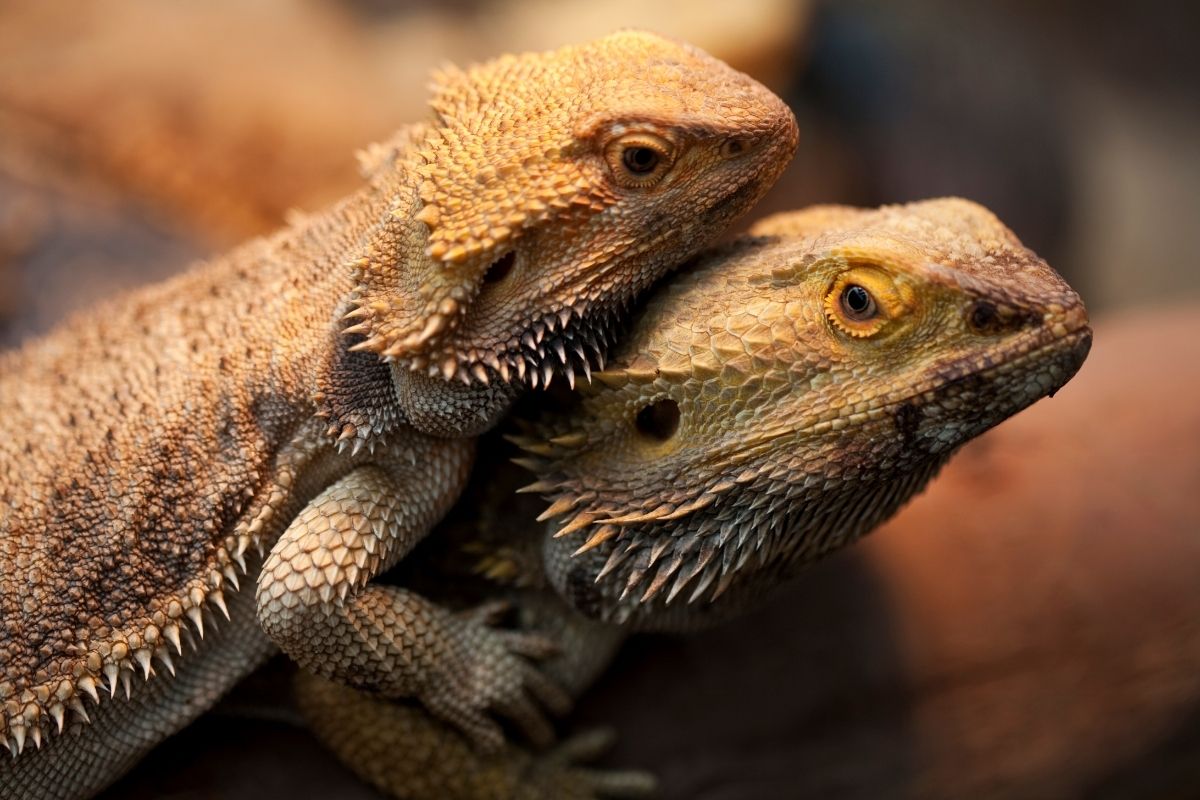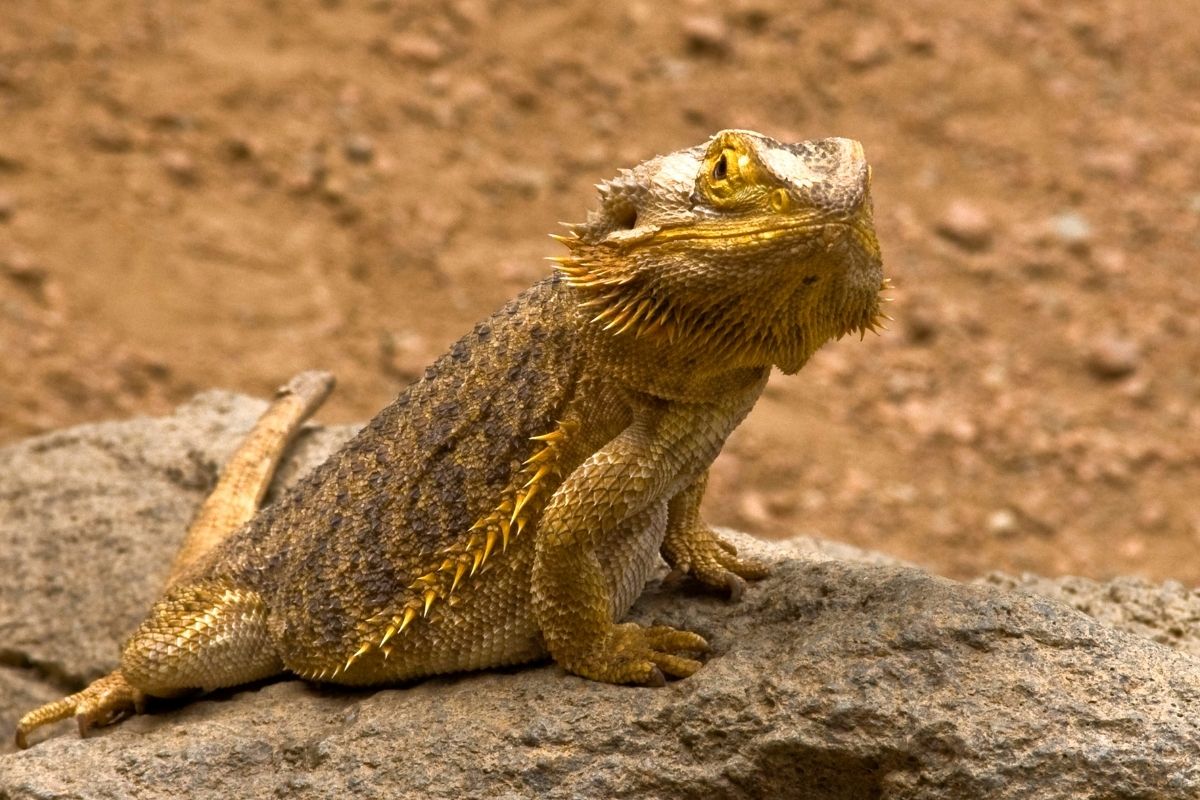While considering which pet to have, the way a pet smells might not be the first thing that comes to mind when making your decision.
Getting a stinky pet, on the other hand, maybe a nightmare, and it is a stench that is extremely difficult to get rid of.

If you’re thinking about getting a bearded dragon as a pet, you might be wondering if they have a strong odor.
Bearded dragons, like the great majority of reptiles, are completely deaf to the scent of their surroundings. Their bodies are absolutely devoid of any odor.
While a dragon’s waste may smell awful, if its housing is not cleaned on a regular basis, it may appear that the bearded dragon is rotting within.
If your bearded dragon does begin to smell, what should you do next? And what can you do to get rid of the foul odor caused by feces?
All of this and more will be covered in detail in this post!
Why Don’t Dragons Smell?
Remember that bearded dragons have no discernible odor, but why is this?
In comparison to humans, the dragon’s body generates very little waste, and bearded dragons do not sweat in the same way that people do.
As a result, they rarely emit any objectionable odors in their natural state.
They Don’t Sweat
The body of a human begins to sweat when it needs cooling down, such as during sports or when the weather is extremely hot.
Bearded dragons and other reptiles are able to flourish in this environment.
Bearded dragons are cold-blooded, which means they require an external source of heat to maintain their physiological functioning and survival.
They make use of the sun and warm stones that bearded dragons like to rest on while they are out in the wild.
Therefore, a bearded dragon will sleep in the sun or on a hot stone in order to boost its internal temperature.
When a bearded dragon becomes overheated, however, it does not sweat in order to control its body temperature like it would in other circumstances.

Consequently, bearded dragons must seek shelter from the sun and avoid areas that are very hot in order to survive.
The dragon’s body temperature will gradually decrease in dark and freezing environments until the reptile is forced to return to the light of the sun to stay warm.
For this reason, bearded dragons have evolved to not sweat when it is too hot since they cannot afford to lose their precious body heat.
Rainfall in their native Australia is extremely scarce for much of the year, making whatever water they come upon extremely valuable, despite the fact that they can survive on very little water in the first place.
As an alternative to sweating, they open their mouths to allow the heat to leave and to keep their body temperature stable.
Fortunately, these reptiles do not have foul breath, so you will not be subjected to any unpleasant odors as a result of that.
They Rarely Shed
When compared to humans, bearded dragons shed at a slower pace.
While human shedding (which occurs on a regular basis) may have a distinct odor, reptile shedding (which occurs once or twice a month) does not have one.
The dead skin peels away swiftly and, in the vast majority of instances, without leaving any scars.
They Do Not Mark Any Territory
Bearded dragons, like many other species, disperse their odors across their territory in order to identify their territory from that of other creatures.
Normally found in the wild and with just a limited area to protect, male bearded dragons spend their entire day fending off intruders by using body language or even participating in physical battles for supremacy.
Why Does My Dragon Smell Bad?

Despite the fact that bearded dragons are odorless, this does not always imply that they are always odorless.
In reality, a dragon will smell like the home in which it lives, which is important to understand.
It should go without saying that if your tank is smelling awful, your dragon will smell horrible, as will your tank. After all, it is its permanent residence.
Your tank may smell terrible for a variety of reasons, including a build-up of excrement, the use of old, dirty substrate, or the presence of uneaten food in the tank, among others.
If your bearded dragon spends the entire day crawling about in that old, dirty substrate, he or she will ultimately develop a strong odor from the environment.
Bearded dragon owners routinely bathe their pets to “clean” them, despite the fact that this is absolutely unnecessary.
Instead, you will be able to keep your bearded dragon from stinking like a sewer by employing proper handling and care skills.
It is preferable to clean your bearded dragon’s tank rather than scrubbing them, which may stress them out and potentially cause more harm than good to their skin.
There are three significant advantages to doing so.
It will, first and foremost, prevent your dragon from smelling, which is the primary goal.
It also means that you will not have to bathe them as frequently, which will be beneficial to the health of your dragon.
Second, because the tank is clean and odorless, the foul stench that has been emanating from the area around the tank should be eliminated.
Your home will smell significantly cleaner and fresher as a result of this.
Finally, a clean environment is much better for a dragon’s health. Bacteria and viruses thrive in filthy environments, which makes them ideal breeding grounds.
These have the potential to make your pet severely ill.
You will significantly minimize the number of germs in the cage, which will lessen the probability of your bearded dragon being ill.
For a bearded dragon, daily tank care is not a time-consuming endeavor.
A brief clean every day, a more thorough clean once a month, and a spritz with water every few days should be sufficient.
Frequently Asked Questions
When it comes to stinky bearded dragons, there is a flood of different questions that people have to ask about the creatures.
The following are some of the most commonly asked questions about this subject.
How Bad Does Their Feces Smell?
The stink of a dragon’s waste has been compared to that of human feces, and it is not uncommon that it smells worse, either.
The bad smells come from the food in their diet, which is typically bugs.
If left for a long time, the smell will grow and get worse, so it is best to get rid of the feces as soon as possible through a daily clean.
Why Does My Dragon Smell Of Pee?
It is possible for bearded dragons that are forced to live in a filthy tank to release smells that are similar to waste and urine.
Due to the enormous number of germs present in the tank, a foul odor can be smelled throughout the tank and around your home.
Feces, uneaten food, and dirty substrate attached to the dragon’s body, causing it to stink as a result.
Why Does My Dragons Tank Smell?
Regular cleaning of the bearded dragon’s tank should be performed to ensure that it remains healthy.
Water and food bowls should be cleaned with hot water on a regular basis, according to the manufacturer’s instructions.
Uneaten food, whether it is vegetables or insects, must be removed from the tank on a daily basis, just as feces must be removed.
From time to time, it is important to completely replace the substrate used in the tank. If you do all this, the scent of your vivarium will always be pleasant.
Do Dragons Smell As They Shed?
There is no distinguishing odor produced by bearded dragons as they lose their skin. Because the skin they remove is dead, it does not produce any odors.
It also typically comes off in one go and in one piece, which makes it easier for you to clean it up.
Why Does My Dragon Smell Of Feces?
On rare occasions, bearded dragons have been observed crawling through their own feces.
Fecal matter attaches to the dragon’s body, and it is sometimes essential to bathe the dragon in order to rid it of the stink caused by the waste.
Summary
There isn’t anything particularly offensive about the odor of bearded dragons. Their feces, on the other hand, can smell absolutely awful.
Therefore, it is critical that you remove any excrement that you come across as soon as possible after discovering it.
As a result, the nasty aroma will be significantly decreased.
Also, keep in mind that you must clean the dragon cage on a regular basis in order to keep it in good working order and in a good environment for your dragon.
Thank you for reading! We hope this information has helped you.
